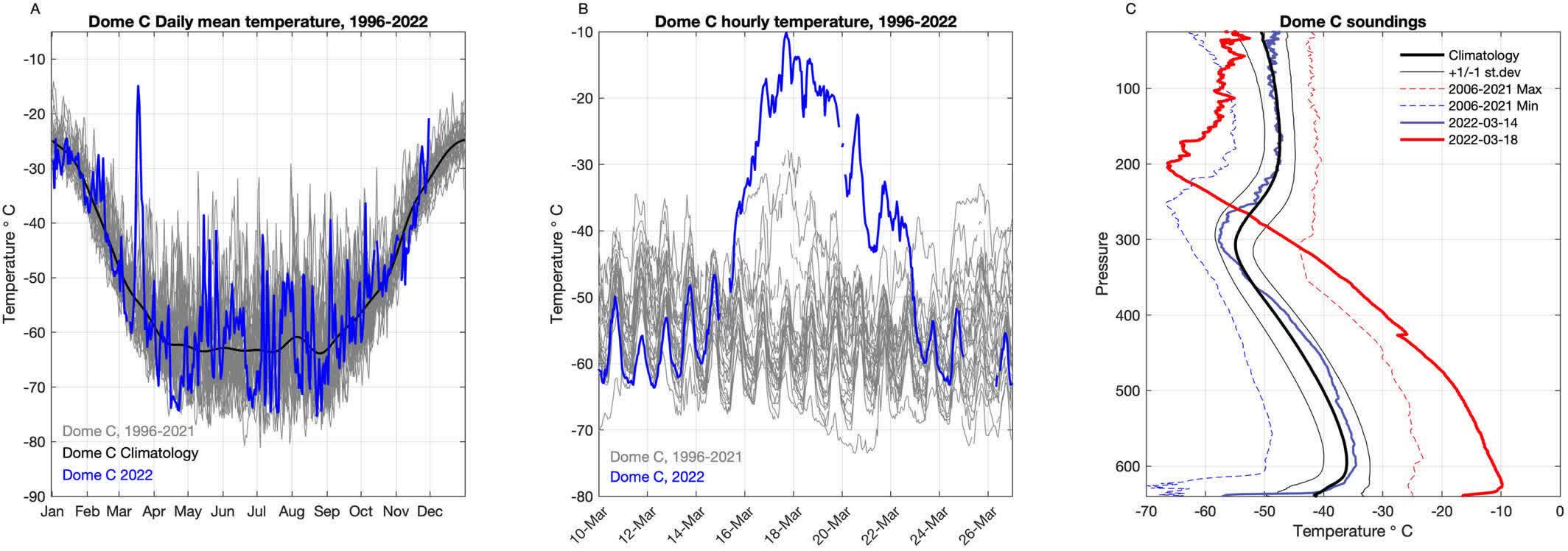The big picture: Temperatures in East Antarctica were 70 degrees Fahrenheit above normal last March, likely thanks to an abnormal shift in the air from Australia. While scientists say the impact of climate change was likely minimal, further global heating could push such polar swings dangerously close to melting temperatures.
A recently published study reveals that the most severe heatwave ever recorded on Earth occurred in Antarctica in March 2022. While huge temperature swings are somewhat common in high latitudes, the ongoing effects of climate change could make them more dangerous.
Temperatures at Dome C station in East Antarctica are usually around minus 54 degrees Celsius (minus 65 degrees Fahrenheit) in March, but last year they briefly rose to minus 15C (5F), above summer highs for the area. Although those temperatures are still freezing, they represent an unprecedented 39C (70F) spike.
Researchers say the heatwave resulted from unusual weather patterns that introduced warm, humid air from Australia. Furthermore, atmospheric conditions in high latitudes sometimes cause extreme temperature swings in parts of Antarctica, Siberia, and northern portions of North America.

Although scientists frequently deduce that climate change increases the likelihood and severity of extreme weather events, it likely only accounts for a 2C difference in the March 2022 heatwave. The number may appear insignificant, but it could rise by 5 or 6 degrees before the end of the century, putting similar heatwaves in future decades uncomfortably close to melting temperatures.
Ice sheet loss, which causes seal level rise, is one of the primary concerns stemming from climate change. According to NASA, Antarctica has lost 146 billion metric tons of ice mass per year since 2002. Antarctica and Greenland together contain two-thirds of the Earth's freshwater, and their ice loss due to ocean warming over the last two decades is behind one-third of the global average sea level rise since 1993.
Furthermore, European climatologists said July 2023 was Earth's hottest month on record. Combined observational and paleoclimate records indicate the planet hasn't seen global average temperatures this high for 120,000 years, since long before complex human civilization emerged.
Rising temperatures aren't the only measure by which human activity has pushed the Earth outside the boundaries under which mankind has established agriculture and built cities. A recent analysis based on various studies reveals that biosphere integrity, freshwater change, land system shifts, and other factors have also changed drastically since the beginning of the Industrial Revolution.
